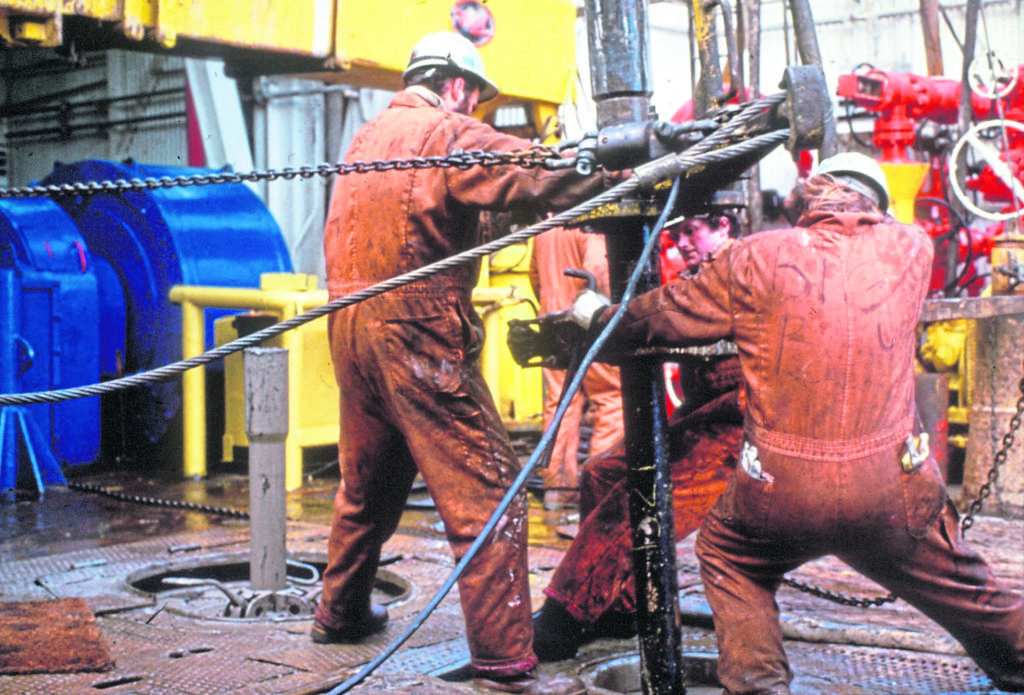
How empowered are offshore workers to speak up about safety or even to stop the job when the risks have become unacceptable?
This was the theme of a two-day workshop in Houston earlier this year organised by the National Academies of Sciences (NAS) in the US.
I was a member of the organising committee, along with Steve Rae of Well-Safe Solutions in Aberdeen, who survived Piper Alpha and went on to become a senior manager in the oil and gas industry.
The meeting was funded from the NAS Gulf Research Program, which received reparation monies from BP following the Deepwater Horizon disaster and which allocates grants to support offshore safety research in the Gulf of Mexico oil and gas industry.
Around 100 invited delegates from this sector attended the workshop and their discussions have been captured in a report which highlights many issues which apply to the UKCS workforce.
While empowerment is a topic that has interested management researchers for many years, this typically relates to productivity rather than accident prevention.
Studies of workers speaking up with safety concerns are mainly based in hospitals, for example on nurses expressing concern for patient safety.
And, of course, there is the question of whether managers listen when problems are identified – we know from recent events in the NHS, such as Gosport, that this is not always the case.
While oil and gas companies and their regulators encourage workers to “speak up for safety”, this is easy to say, and workers can be sceptical about the level of commitment behind such exhortations.
There appears to have been very little research on whether offshore workers, whether in the Gulf of Mexico or the North Sea, actually feel confident enough to do so and whether managers pay heed when issues are raised.
The recent economic downturn in the industry, resulting in considerable job losses and changes to employment conditions, are unlikely to enhance feelings of empowerment when high pressure for production and uncertainly about job security prevail.
Amy Edmondson of Harvard Business School uses the term “psychological safety” to describe the feeling of confidence that is required for workers to challenge their supervisor or to stop a task that has become too hazardous.
Understanding what influences this feeling of psychological safety is key to enhancing empowerment in both workers and in managers.
Christiane Spitzmueller, an industrial psychologist from Houston University, and I reviewed the literature on empowerment for safety and presented our observations at the workshop.
We found that a number of both organisational and individual attributes influence the empowerment needed to express concern over risks, challenge a team leader and, if necessary, ask for the job to be stopped.
In contrast, when people feel disempowered, they tend to keep quiet, keep their head down and generally avoid any kind of confrontation.
Industry representatives at the workshop identified many barriers to empowerment, such as multiple workforce cultures, asset transfers, accelerated use of contractors and limited clarity on roles and responsibilities.
Problems relating to distrust, fear of repercussions for speaking up, closed-minded attitudes, deficiencies in training and competence and a lack of avenues to bring things up were also mentioned.
Mick Will of Ragtop Consulting commented from 40 years in the industry that there were significant improvements and that an “open safety dialogue” now was present between workers and managers.
But he said a gap to true empowerment still existed. Even on the same platform or in the same company, teams and individuals are “in a whole different place with respect to empowerment”, meaning it is “very hard to characterise an overall industry outlook.”
He also made the important point that “worker empowerment is not just empowering the people with the wrenches. It’s got to come all the way up through the organisation.”
In terms of strategies for enhancing empowerment, a whole range of suggestions are listed in the report, with detailed examples given by the speakers.
Steve Rae described not only his experiences on the night of July 6, 1988, but also talked about how this strengthened his empowerment as a safety leader, with the need to remain ever vigilant and uncompromising on the risks in offshore operations.
He recommended the system of elected safety representatives (ESR), which was introduced to the UKCS after the Piper Alpha disaster and has been instrumental in communicating safety concerns to managers from the worksites.
He said the Opito training and competency standards for the ESR “were a step towards empowerment and engagement”.
Subsequent review and the introduction of an inspection regime for the ESR system had produced benefits but he felt there was still room to improve the system, noting that becoming an ESR may be viewed as having a negative effect on one’s career path.
While the idea was clearly of interest and had been recommended by the Chemical Safety Board following their investigation into the Macondo disaster, no such system exists in the Gulf of Mexico.
One major theme on improving offshore safety was on the need to share information and also to learn from other sectors. Camille Peres, of Texas A & M University, described the Pumps and Pipes organisation which brings people together in Houston from the oil and gas industry, medicine and NASA to talk about problems they faced in common. While this is mainly about technological innovation, she suggested that the perspective could be extended to sharing human factors issues which could have benefits for safety understanding. The first Norwegian Pumps and Pipes meeting will be held in October this year.
Another new development, described by Tom Knode was SafeOCS which is an interagency collaboration to support the voluntary confidential submission of information on safety-related incidents. The first report from this data set is due to be released in January 2019.
The full workshop report is available from NAS here.
Rhona Flin is professor of industrial psychology, Aberdeen Business School, Robert Gordon University
To follow more of our special Piper Alpha 30th anniversary coverage, click here.
Recommended for you
